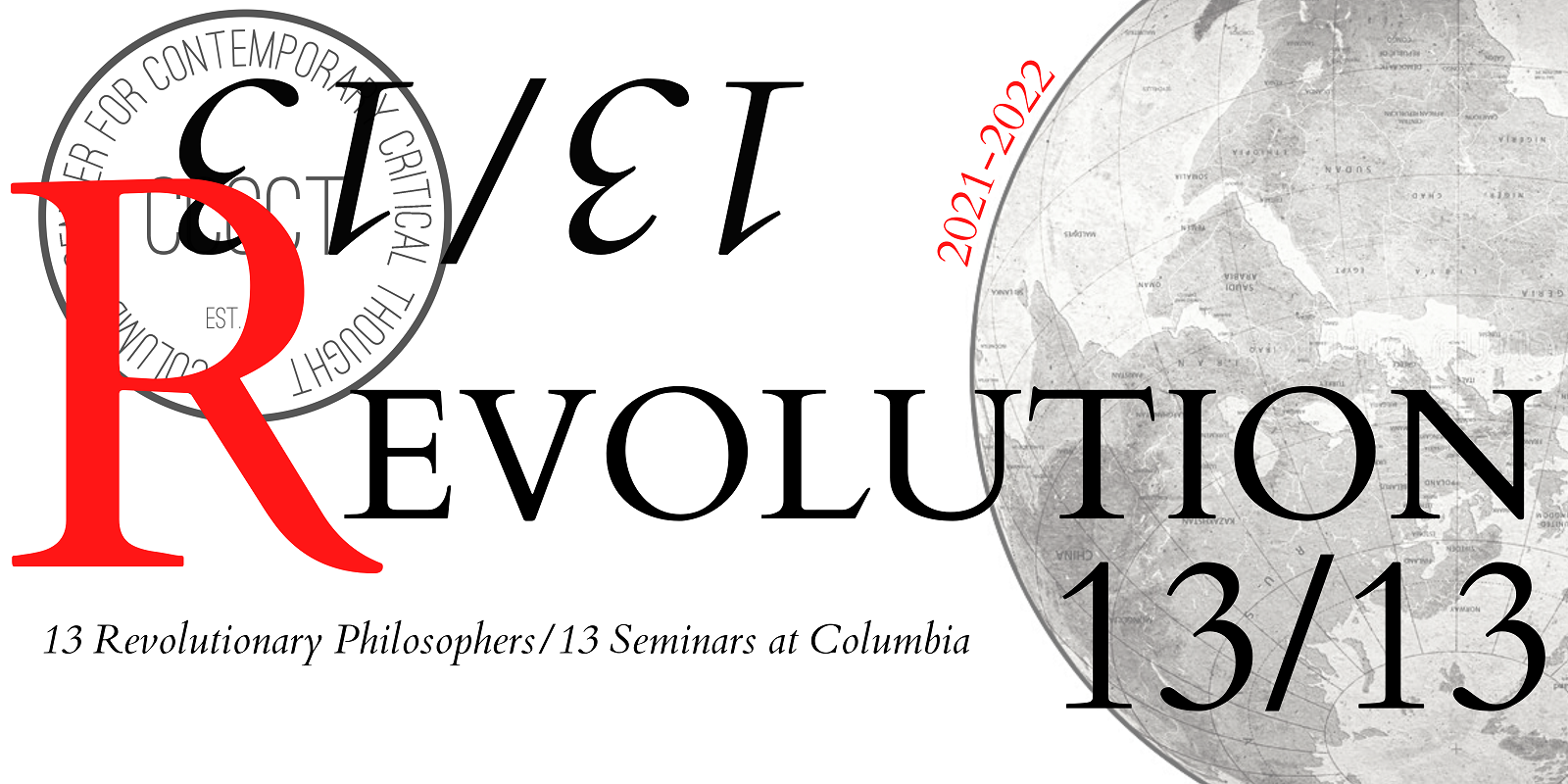Amy Allen and Bernard E. Harcourt
read and discuss
Reform or Revolution and The Accumulation of Capital by Rosa Luxemburg, in the context of Lenin’s State and Revolution and Eduard Bernstein’s The Preconditions of Socialism
in conversation with
Sarah Bianchi, Che Gossett, Marissa Gutierrez-Vicario, André Pettman, Michaela Soyer, and others.
Wednesday, December 15, 2021
St. Mary’s Church in Harlem
~~~
No coarser insult, no baser aspersion, can be thrown against the workers that the remark: “Theoretic controversies are only for academicians.”
— Rosa Luxemburg, Reform or Revolution (1899)[1]
To break down the conventional division of labor between theory and practice—between critique and praxis: that was at the very heart of Rosa Luxemburg’s worldly revolutionary philosophy. On her view, critical theory could not be relegated to the academy or to academicians. Nor could it be the privilege of the intellectual vanguard of a revolutionary party. Theoretical debates and controversies had to be the stuff of all workers—they all had to become acquainted, to engage, and to understand the theory of society in order to rise up, to mass strike, to bring about a new social order.
For Rosa Luxemburg, theoretical knowledge was the sine qua non of revolutionary change, and she lived this out to the fullest in a life of study and revolution, imparting what she discovered about political economy and critical praxis through her many speeches, her articles and pamphlets, her treatise on The Accumulation of Capital: A Contribution to an Economic Explanation of Imperialism (published in 1913 and generally considered to be her magnum opus), and her own revolutionary action. “The entire strength of the modern Labor movement,” Luxemburg maintained, “rests on theoretic knowledge.”[2] Her faith reflected in part her minority status in the Social Democratic movement and party in Germany (SPD)—and thus, her need to reach out directly to the people in order to contest parliamentary reformism, to call for a general strike, to oppose the war, to form a communist party, the Spartacus League. But it was also her life’s calling.
Rosa Luxemburg began studying economics. She received her doctorate in economics from the University of Zurich in 1897 at the young age of 26. Her doctoral dissertation, which focused on the political economy of Poland, titled The Industrial Development of Poland, was immediately published as a book. On the basis of her doctoral research, Luxemburg opposed the national independence efforts in Poland, arguing instead for an internationalist program. As part of the SPD in Germany, Luxemburg lectured and taught economics to workers in the party school from about 1906 to the time of the publication of her book, The Accumulation of Capital, just before the war.[3] (This is all brilliantly spelled out in Jane Anna Gordon and Drucilla Cornell’s introduction and the chapters of their new collected volume, Creolizing Rosa Luxemburg, just published at Rowman & Littlefield).[4]
With her love of learning and teaching, and her passion to break down the gap between critique and praxis, Rosa Luxemburg placed her faith in the working class. More important than getting it right, what mattered was who made the decisions and how—and to not be disheartened by failures, but rather to learn from them. Luxemburg claimed that right. “The working class demands the right to make its mistakes and learn the dialectic of history,” Luxemburg declared. Closing out her tract on Leninism or Marxism? in 1904, Luxemburg wrote:
Let us speak plainly. Historically, the errors committed by a truly revolutionary movement are infinitely more fruitful than the infallibility of the cleverest Central Committee.[5]
— Rosa Luxemburg, Leninism or Marxism? (1904)
Welcome to Revolution 5/13!
